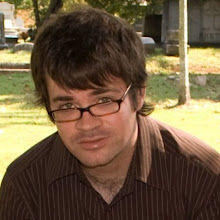The subtitle of this blog is "Musings on Southern History and Genealogy". So often in the halls of academia, there is a tendency for historians to condescend to the discipline of genealogy as something less than academic. As a young student I was surprised by this, until gradually the view infected me, too. But now as I mature as a historian, I am coming to see that history and genealogy really are not that separate. They are sisters, born of the same impulses within us. They utilize many of the same skills, resources, and methods. Even their approaches and their foci are often the same, especially here in the South, where so much about people and events is defined by family traditions and connections to each other and to the land.
 |
| Micajah B. Richardson (1825-1914) of Elmore County, Alabama, my third great-grandfather. (Photograph circa 1900?) |
Genealogy, certainly, is much more accessible than the tall, musty tower of academic history. I as a historian hope someday to open the doors, to let in the fresh air, to invite the public to my love for the past. But I was a genealogist long before I was a historian. As a sixteen-year-old high school student, it was my fascination with my own family and its traditions that compelled me into the past. That fascination bled over into wondering about other families, other places, the lives and times of people of times past and the events they lived through. Genealogy was my gateway into history.
Anyone can begin a study of their genealogy, even a teenager with nothing but his curiosity; and with so many resources now on the Internet, it's easier than ever. With so many people looking into the past, there is so much opportunity for these genealogists to be compelled into history, too.
My interest in genealogy arose from a yearning within me to understand where I came from, to understand the path that brought my family to the present and brought me into the world. Genealogy seeks to answer these questions by studying the forces of family: intermarriage, the birth of children, death, and migration. It is personal and intimate, looking at our own ancestors, to whom we feel a deep and primal connection. It tells personal stories, stories of the ones in the past closest to us, our own families.
History seeks to answer these same questions. Where did we come from? What events and forces shaped our past and our present? Historians examine, in large, the forces of society: politics, economy, culture, ideas, religion, and many others. I as a historian have broadened my horizons, and come to see that my own family is part of a larger whole, and that by studying the forces of history upon that whole, I am satisfying the same yearning; by understanding that whole, I can better understand the milieu in which my ancestors lived and the course that arrived finally at me. History tells stories, too: from the stories of individual people, to those of episodes, localities, and communities, to the broad, sweeping epics of periods and nations. Southern history for me is only one step back; I still feel a deep and personal connection with the South and with Southerners, and it still answers these burning questions for me. Many of my brethren find passions for times and places far departed, for ancient Rome or medieval Europe. Though fascinating, that has never been my cup of tea; I prefer my own back yard; but by understanding the forces that shaped even the ancient past, other historians seek to understand what brought our world and its peoples and societies to their present, and to satisfy that same deep yearning and curiosity.
This has gone on longer than I had planned. And I still have two big points I wanted to cover! I will save these for another time. Next I will talk about the skills, resources, methods, and approaches that the disciplines of history and genealogy have in common. I will argue that genealogy can be academic, too, and that history has no place to condescend. In the South more than other places, history and genealogy often overlap.






2 comments:
We need more Southern historians and you are already becoming one. You are right, the genealogy part of history makes it really personal and makes us want to dig deeper to see if we can discover those little hidden details that we are so eager to understand about our families and how they fit into the big picture.
Your blog is awesome and I love the header!
I appreciate how much you emphasize the importance of knowing where we and our culture come from in terms of understanding where we're headed. That kind of attitude may be the ONLY thing that will save us from repeating history!
Like you I think many of us with roots in the South feel a strong connection to our Southern ancestors. It always galls me a bit to hear people say, "it's the past, get over it." Yes, it is the past--but it is also who we are, and could very well be our future, if we forget about it in the present!
Post a Comment